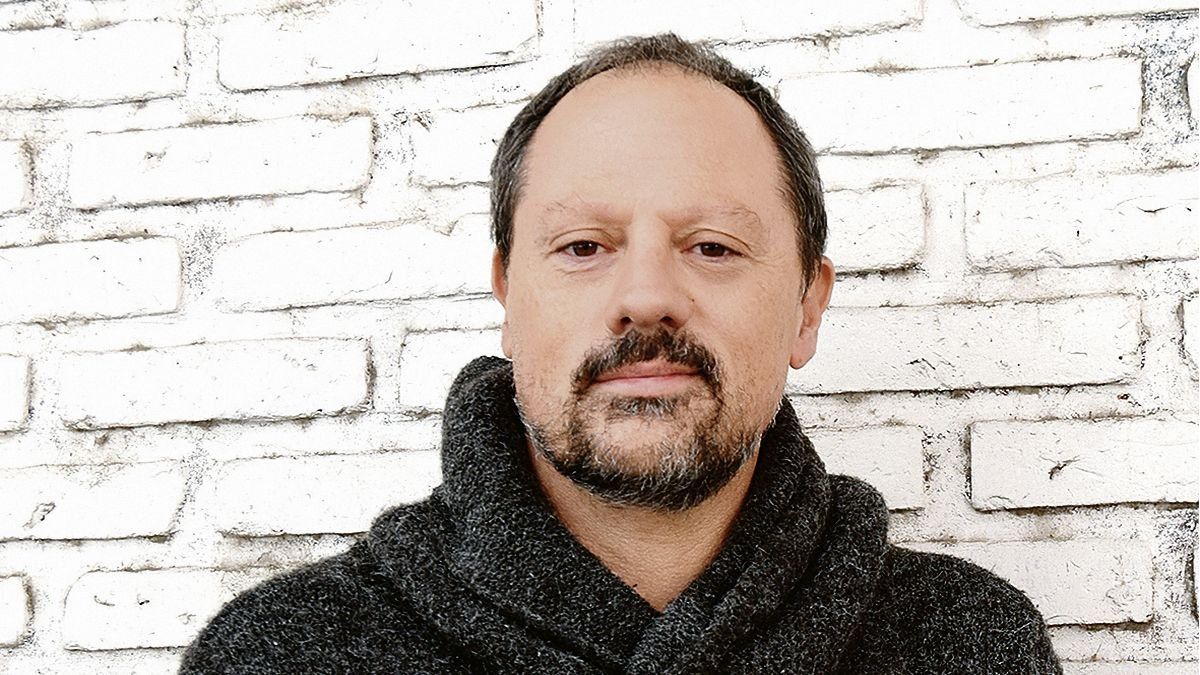Journalist: Why the theme of an unexpected pregnancy and another not achieved?
Peter Gundesen: I wrote it in the drama course during the debate on abortion, which was negative, and out of 18 students, 11 addressed that issue. My last three works account for pivotal moments in Argentina. “Argentinien”, which premiered at the Cervantes, takes place when Perón nationalized the railways; “Limbo Kilometer”, also in the Cervantes, takes place in 2001 when a cage truck overturns and the inhabitants butcher the load; and I am with “Widow of the slaughterhouse” that takes place in Buenos Aires in 1816 and is the vision of the widow of a Unitarian, a sort of continuation of Echeverría’s “El matadero”.
Q.: This is your first work that takes place today.
PG: We always say that the theater takes a position on judged and digested events, that distance is an element of comfort for the theater. I got involved with the contemporary, with the new forms of maternity, abortion, and very urban and vulnerable beings, beings alone, with human relationships such as watasapp messages. The audio as a need and desire of the person who sends it, without the interaction of the relationships to which we were accustomed. And it is contemporary not only in terms of theme but also in device, because those 32 weeks are seen in different scenes that are not exactly 32 but are skipped, and different spaces are built. They are short, cinematographic scenes, and they have to do with an anxiety of these times of not being able to stand two characters talking for an hour.
Q.: You say that the public no longer tolerates two characters on stage for more than an hour. What would become of milestones like those of Bergman, Ibsen, Bretch or so many more?
PG: This work is based on “Liquid Love” by Bauman, of whom a lot has been done. Here there are love relationships that end up becoming short episodes showing that when the couple stops being profitable, a new one is sought. They are characters who do not seek but find. There is an influencer who wants to be a mother at 40 and is looking for a donor. The woman who works in her house comes from the interior and when she gets pregnant she hides it so as not to lose her job. There is also an evangelist pastor and a cameraman. In one department they cross the pregnancy that is not achieved with all the means and the other, lacking resources, is hidden.
Q.: The play won the Argentores dramaturgy contest, why do you think they awarded it?
PG: There is something interesting that are the characters, very Buenos Aires, unpleasant at first but all have some trait that generates identification. There is contradiction and mercy in these beings. The new dramaturgies are boiling, and new media have been added due to the streaming that proliferated in the pandemic, it was the only way out and although I now try to avoid it, it has left remnants in the duration and speed of the works. Streaming continues to be the weapon to conquer new audiences beyond those who are 40 or 50 years old and who go to the theater. A change was forged in the ways of writing, as well as the irruption of microtheatre, a subgenre that contributes to the new dramaturgies. Also the corporal, the dance theater, the biodrama, and I don’t know what will happen with the more classic text theater, there is a lot of diversity and people training.
Q.: How do you see this moment in the performing arts?
PG: We are at the peak of production of works in recent years due to everything that was pending from the pandemic. There is an oversupply for a slightly decimated public economically and that is a complicated match. Being part of the Cervantes or the San Martín is difficult because the last two years are recycled. We have decided with the director to co-produce the play with El Picadero after seeing that it is very difficult for an independent author to reach commercial theater in the face of the large presence of foreigners. And the independent continues to have the commitment of the makers of it but the economic conditions are difficult, with tickets at 700 pesos it becomes an adventure in which one starts from far behind. Making a profit is almost impossible.
Source: Ambito
David William is a talented author who has made a name for himself in the world of writing. He is a professional author who writes on a wide range of topics, from general interest to opinion news. David is currently working as a writer at 24 hours worlds where he brings his unique perspective and in-depth research to his articles, making them both informative and engaging.




